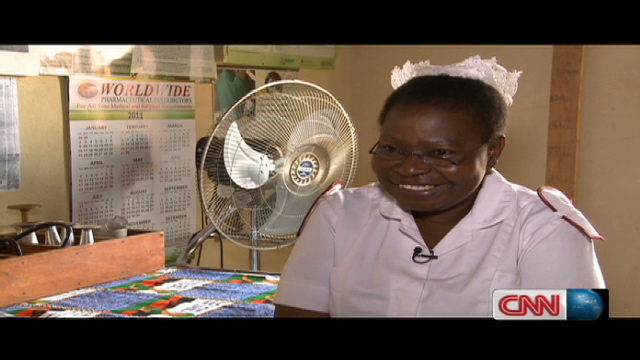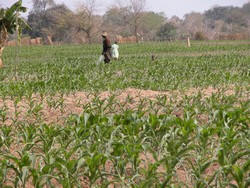From Nkepile Mabuse, CNN

Lilongwe, Malawi (CNN) — For one retired midwife, seeing too many mothers die during childbirth led her to quit her job and take on the third highest infant mortality rates in the world.
She could be considered Malawi’s own Florence Nightingale. Using the most basic equipment, Charity Salina has single handedly delivered more than 4,000 babies and recorded no deaths.
The nurse quit her research job at the University of North Carolina in the United States and with her pension and a $600 loan she opened a birth clinic in one of the most impoverished communities in Malawi.
It’s a mission she is passionate about.
“You bring out a live baby and she cries (and) you think ‘wow I’ve given life to this one!'” Salima said.
Salima set up her clinic in the poor urban township known as Area 23 just outside the capital Lilongwe after witnessing too many deaths during childbirth.
But the problem spans the country, with a lack of decent healthcare facilities being blamed for countless tragedies.
“Most of the people don’t have transport to take them to the main hospital,” she said. “Sometimes labor starts at night, there is no transport available — what do you do?”
–Charity Salima, midwife
Salima says she would often be contacted to assist at a birth when it was already too late for the baby or the mother.
Her Achikonde birth clinic opened in August 2008. It offers prenatal, birth and post-natal services for free. The center is strategically placed in a highly-populated residential area that women can easily reach by foot.
But Salima nursed her dream of starting a clinic for years until she had money to open it.
“Sometimes you have to start the ball rolling before other people come to help you, so I was buying one pillow keeping it, two blankets keeping it,” she said.
There is no fancy equipment or high-tech devices in the scantly resourced clinic. It’s based in a small house that Salima rents and she’s on call 24 hours a day.
Salima credits her training for all her successful deliveries.
“You can have the best resources in the world but if you are not trained properly you can’t give life,” she said.
“I am somebody that is qualified enough and I am experienced enough. As soon as I see this is not a condition I can deliver here, there and then I transfer the woman to the main hospital,” she continued.
Once the babies are born, Salima tries to discourage mothers from having more children than they can cope with.
–Charity Salima, midwife
There are also services for HIV-positive mothers, who are provided with counseling and given medication to reduce the risk of transferring the virus to their newborns.
Salima’s clinic relies largely on donations — for example the vehicle that’s used to transport patients was donated by nurses from Scotland. Salima says the challenges of running a place like this in one of the poorest countries in the world are enormous.
“Sometimes we have blackouts. As I’m talking now there is no electricity — I would love to have a generator,” she said. “We also have water blackouts. There is no water here at the moment — if we had a borehole it would be better.”
But despite all the hard work with no pay, it’s the love the midwife has for her community that keeps her going.
“Women … when I die they should remember me and say we had a woman in this community who was so passionate about us, so passionate about our babies and it is our duty to bring live babies to the community, live babies to the country, live babies to Africa,” she said.

.jpeg&w=60&q=100&h=60)




.jpeg&w=60&q=100&h=60)





